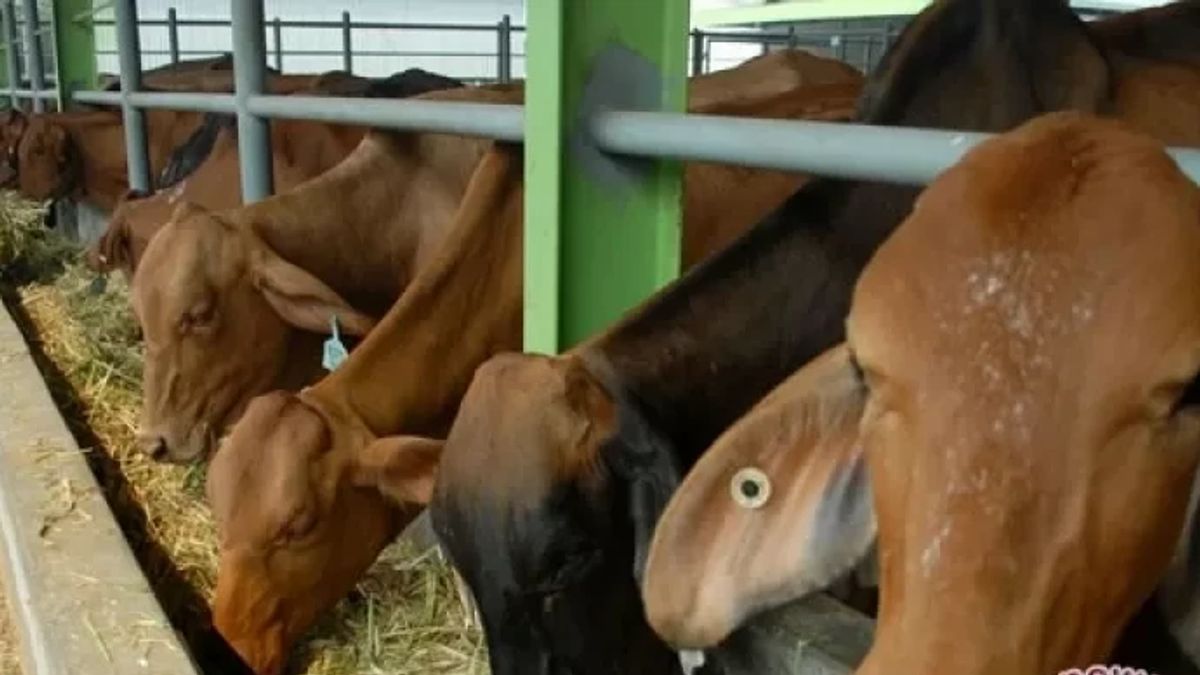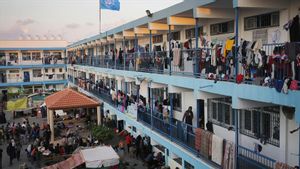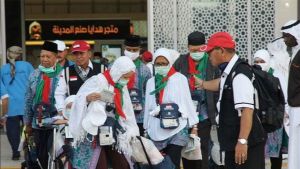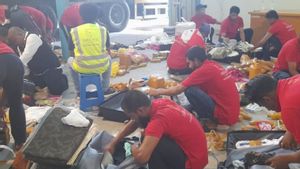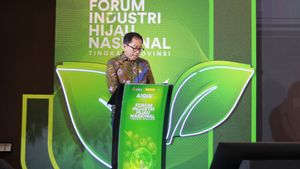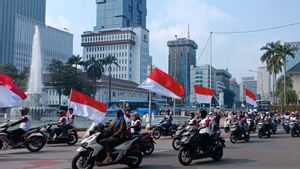SURABAYA - East Java Governor Khofifah Indar Parawansa ensured that the stock of sacrificial animals in his area was safe for the Eid al-Adha celebration. The availability of cattle ready for slaughter in East Java totals 1.2 million heads.
"For cows from a population of 5.2 million cows (beef cattle and dairy cattle) there are 441,371 ready-to-be slaughtered cattle and 108,136 potential sacrificial animals," said Khofifah, Monday, May 30.
As for the stock of goat population, this year there are as many as 4.3 million goats, and there are 659,270 goats ready for slaughter and 161,521 potential cattle for sacrifice.
As for sheep from a population of 1.4 million sheep, there are 490,878 sheep ready for slaughter and the potential to become sacrificial cattle of 120,265 heads.
When compared with the slaughter of sacrificial animals in East Java, in 2021 the total slaughter of sacrificial animals is 396,491 heads. The details are 70,961 cows, 276,987 goats, and 48,531 sheep.
"East Java projects to slaughter 432,845 sacrificial animals in East Java in 2022, with details of 87,965 cows, 296,349 goats, and 48,531 sheep," he said.
According to Khofifah, the transmission of PMK cases does not affect the availability of livestock stocks in East Java. As of May 29, 2022, the number of PMK cases in East Java has reached 17,934 spread across 25 districts/cities in East Java.
Of these, 15,521 cows were reported to be sick, 2,289 were cured, and 124 died.
Meanwhile, until May 30, 2022, the status of the PMK area in East Java is divided into four based on the district epidemiology unit. Namely, free areas, namely districts where there has been no clinical sign of FMD, and Suspected Areas, namely districts where there has been an incidence of disease with clinical signs of FMD and has not been confirmed by a laboratory.
"Meanwhile, the infected areas are regencies where there have been cases of disease with clinical signs of PMK, and confirmed positive by the laboratory. And the outbreak areas, namely infected districts and have been designated by the Minister of Agriculture as outbreak areas," he said.
This PMK issue, continued Khofifah, must continue to be a concern for all parties, because it has a fairly large economic impact. This can be seen from the GRDP of East Java in 2021 amounting to Rp. 2,454.5 trillion, the contribution of goats and cows 0.92 percent or Rp. 22.58 trillion for the GRDP of East Java.
"Moreover, in East Java, there are many smallholder farmers, so the impact is felt. For this reason, promotive, preventive, and curative and rehabilitative steps for handling PMK must be carried out. Including simple guidelines for handling PMK for breeders must be disseminated more widely," he said.
The English, Chinese, Japanese, Arabic, and French versions are automatically generated by the AI. So there may still be inaccuracies in translating, please always see Indonesian as our main language. (system supported by DigitalSiber.id)
